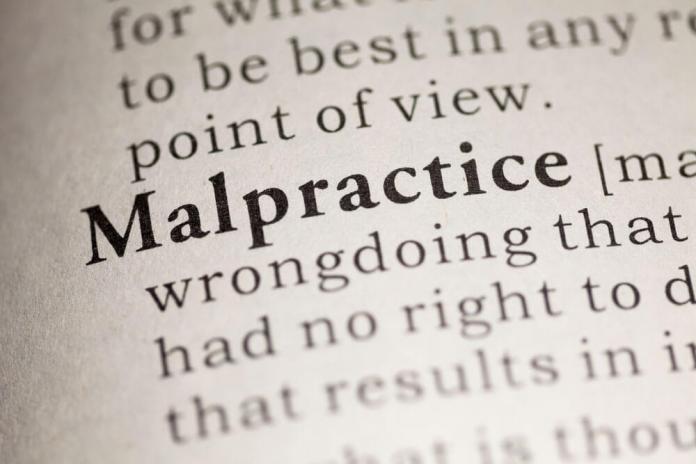What Is Medical Malpractice?
Medical malpractice can leave patients and families with lasting pain, suffering, and medical bills. Attorney Michael B. Brehne explains what medical malpractice is, what to look for, and what to do if you suspect malpractice has occurred.

All too often for patients, medical errors and negligence lead to lasting harm and hardship, and sometimes even death. Medical negligence is widely reported as the third leading cause of death in the U.S.—surpassed only by cancer and heart disease.
What Is Medical Malpractice?
Medical malpractice is defined as a failure of duty or lack of skill or professionalism by a physician resulting in death, damage, or injury. Medical malpractice can occur at any point when a patient undergoes treatment.
Some common examples of medical malpractice are:
- Misdiagnosis or failing to diagnose an illness.
- Disregarding or mixing up laboratory results.
- Unnecessary or improperly performed surgery.
- Inappropriate administering of medicine, failing to follow-up, or early release.
- Ignoring patient medical history, not administering the proper tests, or recognizing symptoms.
Have You Been a Victim?
Life-changing medical procedures and emergencies can often leave people feeling victimized and vulnerable. However, simply experiencing a poor outcome or recovery from a treatment does not necessarily indicate medical negligence. In any instance of medical malpractice, 3 factors must be present and verifiable to prove your case:
- Deviation or Violation of Care Standards
The medical profession has an established level of standards for treatment deemed acceptable for responsible healthcare providers. For negligence to be established, it must be determined that the known standard of care has not been met. Specialists including cardiovascular surgeons and neurosurgeons are often held to higher standards than primary care physicians.
- The Deviation, Violation, or Negligence Resulted in Injury
It is the patient’s responsibility to prove that injury was the direct result of a healthcare professional’s actions and indiscretion.
- The Patient Suffered Serious Harm or Damage
Patients must show that their injuries impacted their lives, happiness, and ability to work in significant ways. It’s easy to think that any unnecessary hardship stemming from a medical accident is significant, but medical malpractice lawsuits come at a high price. Litigation fees can soar during lengthy testimony from medical experts. Therefore, it’s essential that a patient is able to demonstrate that the injuries caused by medical negligence resulted in permanent disability, lost wages, pain, suffering, and bankrupting medical bills.
What to Do
If you think you or a family member is a victim of medical malpractice or criminal negligence, schedule a consultation with a lawyer who specializes in, and has a proven history of winning medical malpractice claims. Be sure to tell the attorney the entire story, in detail. Begin with the first time you visited your doctor or began a medical treatment, and end with your last recorded correspondence with them. These details will help your attorney determine if you have a valid claim.
Michael B. Brehne, an attorney based in Central Florida, owns two law firms – The Law Offices of Michael B. Brehne and 911 Biker Law. His firms specialize in personal injury, family law, criminal law, auto and motorcyle accidents, and insurance disputes.
Malpractice image courtesy of Shutterstock.






